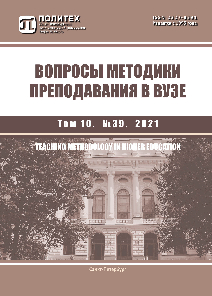Work Placements for Translation Students as Seen by the Industry and Higher Education — Interaction Experience
The essay focuses on the role of work placements in training for the translation industry professionals, analyzes the issues associated with how this phase of training is arranged at Russia’s higher education institutions. Based on findings from the surveys of stakeholders interested in this method of training for the translation industry professionals, it analyzes the expectations of translation companies, professors, and undergraduates. Placements in both academic and working environment are an important component of the training process. Placements are aimed at solidifying all theoretical knowledge and practical skills acquired by students while studying at higher education institutions. The essay focuses on a much talked about issue associated with how work placements are arranged — placement efficiency improvement. In many cases, higher education institutions take a rather formalistic approach to organizing placements, thus leaving students having to search where to do placements either on their own or through their parents and acquaintances. The allocation of undergraduates across companies under agreement with universities is often based on the subjective attitudes of university placement mentors towards certain students. The analysis of surveys among the managers of translation companies shows that many of them have positive attitudes towards interactions with higher education institutions. Quite a lot of companies already have experience in recruiting undergraduates on work placement. Companies try to minimize their involvement in elaborating the necessary accompanying documentation on placements as it is important to a higher education institution only. The emphasis is put on purposeful aspects of placement, interaction with students. The essay also contains data from the survey of placement participants sharing their impressions of placements. In conclusion, the authors presented the list of recommendations based on their personal experience in arranging the placements of translation students both from the perspective of a university work placement mentor and from the perspective of a translation company.



